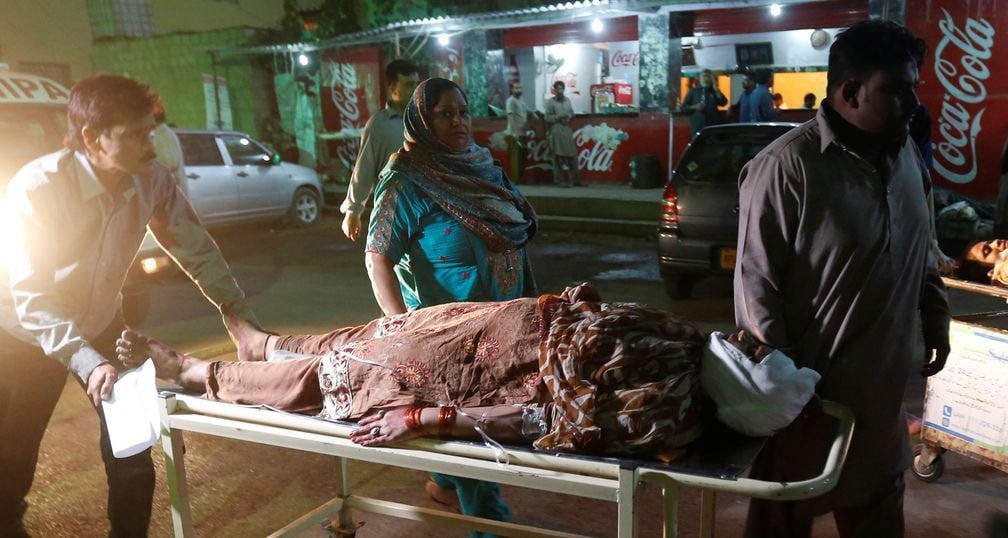
Has the international terrorist group found space in Pakistan?

Whether or not Daesh will show up in Pakistan has been a regular topic of discussion between professional as well as arm chair security analysts. The general consensus has been that Daesh will not find space in Pakistan. A variety of reasons are put forth: that the jihadi landscape is already saturated, that Daesh has no roots in this region, and most importantly, that this is al-Qaeda’s home ground.
However, over two years ago, on October 31, 2014, the Home and Tribal Affairs Department of the Government of Balochistan issued an information report marked ‘Most Immediate’. It read: "It has been reliably learnt that Daesh has offered some elements of Lashkar-e-Jhangvi (LeJ) and Ahl-e-Sunnat Wal Jamaat (ASWJ) to join hands in Pakistan. Daesh has also formed a ten member ‘Strategic Planning Wing’… They intend to carry out multi-faceted attacks on LEAs and seizure of important government installation in Khyber Pakhtunkhwa (KPK). Daesh desires to assign offensives to LeJ against Ahl-e-Tashi in Pakistan, resultantly sectarian outrage will increase in Pakistan."
Even after this report, the consensus remained the same, that there is no space for Daesh in Pakistan.
However, recent events, such as the attack on the Police Academy in Quetta on October 24, have led to analysts re-examining whether Daesh can find space in the Pakistani landscape and be able to thrive in the existing jihadi market. The Quetta attack, which took at least 59 lives, was jointly carried out by the Islamic State (IS) and the Al-Alami faction of the LeJ. Less than a month later, on November 12, at least 45 people were killed in an explosion at the Shah Noorani shrine in the Khuzdar district. Again, the same two groups claimed responsibility. And on November 17, an eight-member IS cell was busted in Lahore.
The Jihadi Bazaar of Pakistan
"It’s not as if IS has landed in Pakistan", says Kamran Bokhari, Senior Fellow with the Center for Global Policy and Fellow with George Washington University’s Program on Extremism. "There is incoherence within the militant landscape (in Pakistan) and the people who left are looking for a new anchor. IS provides that anchor".
The incoherence that Bokhari speaks of is a result of successful military offensives taken by the Pakistani Army against militants. As a consequence, terror outfits such as the Tehrik-e-Taliban Pakistan and al-Qaeda have taken a serious hit. Their ability to conduct operations inside Pakistan has significantly diminished.
This, in turn, has created a window of opportunity for Daesh to move in. "At best they (Daesh) have advisors, although I’m not clear if they’re on the ground -- the people who were previously conducting attacks under the TTP banner are now working under IS," says Bokhari.
The group IS has chosen to work through is al Alami, a splinter group of Lashkar-e-Jhangvi (LeJ). According to experts, the al Alami faction is one of at least eight loosely linked factions of LeJ. It was formed in 2004 after a meeting between the LeJ Southern Punjab Chief Asif Chotoo and then TTP head Hakimullah Mehsud. Al Alami’s main agenda was to set up operations in Balochistan. Other names associated with the group include Usman Saifullah Kurd, the former head of LeJ’s Balochistan chapter and Usman Punjabi, a former spokesman of the Punjabi Taliban.
These figures are well known in jihadi circles and their association with al Alami points to the faction’s importance within LeJ.
Historically, LeJ has been an anti-Shia terrorist group with domestic aspirations to make Pakistan a Shia free state. However, al Alami is Arabic for ‘international’ -- does this mean that the group has plans beyond Pakistan?
According to security expert Amir Rana, these hyper aspirations are part and parcel of evolving ideologies with some groups leaning toward greater, transnational plans. "The sectarian divide is immense, both in the Arab world and here at home. This divide creates opportunities for groups such as the LeJ to exist and thrive", says Rana. And as everybody knows, with both Saudi Arabia and Iran playing a religious proxy war within Pakistan, dealing with the sectarian problem is no easy task.
Allies of all colours
A recent investigative report by the Daily Ummat newspaper has added a new dimension to the Daesh paradox in Pakistan. The report suggests that links have been discovered between Daesh and the Baloch Liberation Army (BLA). It is easy to reject this report on the basis that Daesh is a religious brand whereas the Baloch resistance is religious and purely political. Add to this the historical evidence of the LeJ being used to suppress Baloch separatists, and it becomes even harder to swallow.
However, Bokhari believes that the relationship serves both sides. "Daesh needs partners on the ground, and the Baloch resistance has been hurt so badly by the Pakistani state that they are willing to work with anyone," he says. There are also unconfirmed rumors of rifts within the Baloch resistance as well, with certain sections distancing themselves from BLA because of their growing closeness with Daesh.
With each successive attack, Daesh makes itself more attractive to other groups operating in the Pakistani space. Given enough time, it may well be able to get some boots on the ground.